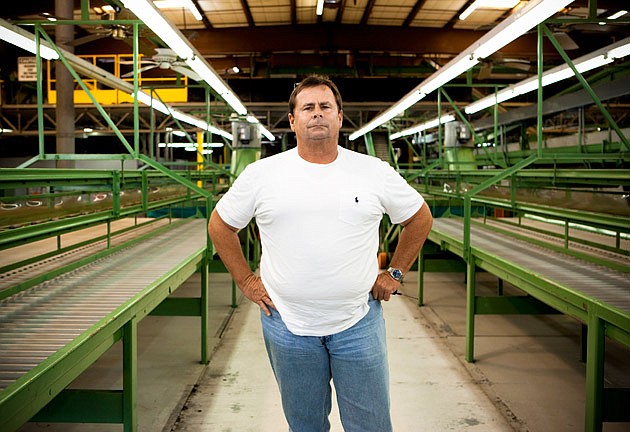The economy's nosedive began just as some entrepreneurs bought a Gulf Coast family business. They are still hanging on a year later.
In 2007, a trio of tomato industry pals thought the perfect finale to their agricultural careers would be to own their own company together.
So the tomato gurus — sales manager Ed Angrisani, independent grower Brian Turner and Jim Grainger, who had run his own operation in Ruskin for several years — sought to buy a successful packing and growing outfit they could eventually expand. They settled on Palmetto-based Taylor & Fulton, a family-run business founded by local growers Jack Taylor and Pete Fulton in 1953.
By early 2008, a deal to buy Taylor & Fulton was in place. Then, of course, the national economy dropped off a vine.
The recession forced the partners to rein in some big expansion plans, but overall they hold no regrets about going into business for themselves. “We would have liked to have written a different script,” says Grainger. “But at the end of the day we are still in business and we are very thankful for that.”
Grainger's gratefulness belies the company's recession-era success. The partners still invested tens of thousands of dollars in aesthetic and infrastructure improvements to the company's facilities.
Those upgrades put the company in a position to capitalize on some niche corners of the industry, which in turn facilitated a 33% annual revenue growth in 2008, from $30 million in 2007 to $40 million last year.
The company, with about 1,000 employees along the Gulf Coast, is guarded about its business strategy and its customer base. Grainger would only say that the company sells its tomatoes under the Taylor & Fulton brand name everywhere from Mexico to the U.S. to Canada, with a few customers in the Caribbean Islands.
About 60% of its sales are derived from retail and fast-food industry customers.
The new version of Taylor & Fulton can trace its recent successes to some changes it made to its plants, processing centers and growing sheds, which are located in northern Manatee County and Immokalee, in rural Collier County.
Says Angrisani: “We've done a lot of things to bring the facilities up to the highest standards.”
That included repainting its Palmetto plant and expanding its largest shed there. The extra space allowed Taylor & Fulton to expand its harvest season in 2008, from what was once a November to March session to as long as October to June.
The company also recently spent considerable time and money on an all-out effort to refurbish its facilities so it could exceed FDA standards of cleanliness and hygiene. Company executives decline to elaborate on how much money they spent on the project, but Grainger now says Taylor & Fulton is so clean, “you could eat off the floor in both our warehouses.”
Grainger says state and federal government regulations are one of the company's biggest and constant challenges, because the rules are so exacting and complicated.
The stringent guidelines also put Taylor & Fulton at a competitive disadvantage, Grainger says, when put up against Mexican and other foreign tomato growing businesses that don't have such strict domestic rules.
“Everyday you go to work you are handicapped on what you can or can't do,” says Grainger. “But our foreign competition can dump product here and not have to go through this.”






